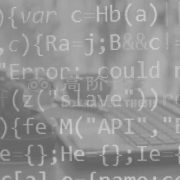英文论文代写:批判性反思的案例
英文论文代写:批判性反思的案例
被选中进行批判性反思的案例是Russell Cty。Cmty。Hosp.诉阿拉巴马州。Dep没有收入,没有。15 – 1683(阿拉巴马州。Trib税收。2016年6月13日)。阿拉巴马州的税务法庭裁决,当纳税人购买了一款软件并对该软件进行了修改以供其专用时,该购买行为将成为不纳税的行为。非税收是由于定制。根据这一规定,阿拉巴马州税务局(DOR)拒绝退款,因为定制的罐装软件中既有非应税的定制部分,也有应税的罐装部分。由于他们没有分开,也不能显示为分开,退款被拒绝。
英文论文代写:批判性反思的案例
然而,当案件提交给首席税务法庭法官比尔·汤普森(Bill Thompson)时,法官表示,采用的DOR法规在本质上是矛盾的。确实,非征税只适用于在软件中定制的范围。然而,同样的DOR也被认为将现有的软件作为定制的一部分。根据阿拉巴马州。管理。代码r。810-6-1 -。37 .有一种司法方法可以减少对修改的承认。执政党对税务案件的解释是正确的,因为它根据其最初的目的或意图实施了相关规定。如果对可识别软件的修改有限制,那么这些元素必须明确地声明。这种形式的软件定制正在成为一种趋势,税法应该修改或改写,以明确地呈现定制软件的构成。
英文论文代写:批判性反思的案例
The Case in question that has been selected for critical reflection is Russell Cty. Cmty. Hosp. v. Ala. Dep’t of Revenue, No. S 15-1683 (Ala. Tax Trib. June 13, 2016). The Alabama Tax Tribunal ruled that when a taxpayer purchased a software and made modifications on the software for its exclusive use, the purchase would become nontaxable. The non-taxation is because of customization. Based on this regulation, the Alabama Department of Revenue (DOR) denied a refund, because the canned software that was customized had both nontaxable customized portions in it and taxable canned portions in it. Since they were not separated and cannot be shown to be separate, the refund was denied.
英文论文代写:批判性反思的案例
However, when the case went to the Chief Tax Tribunal Judge, Bill Thompson, the Judge stated that the DOR regulation which was applied was in nature contradictory. It was true that the non-taxation applies only to the extent of what had been customized in the software. However, the same DOR is also seen to include the existing software as part of the customization. According to Ala. Admin. Code r. 810-6-1-.37, there is a judicial way that is possible to reduce this recognition of modification. The ruling party was correct in interpreting the tax case, as it has applied the regulation that based on the original purpose or intention behind it. If there was a limit on the modifications that could be recognized with respect to the canned software, then such elements must be stated explicitly. This form of software customization is becoming a trend, and taxation law should be revised or rewritten to explicitly present what constitutes customization software.








